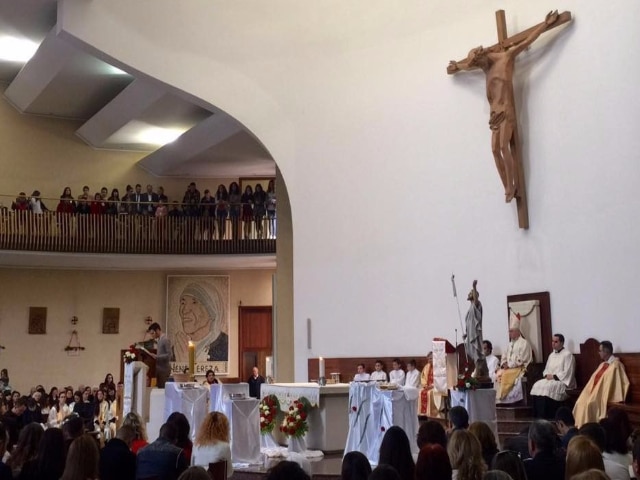Christianity, one of the world’s largest religions, is characterized by its rich diversity of beliefs and practices. Over the centuries, various Christian denominations have emerged, each with its unique interpretations of scripture, theological emphasis, and worship traditions. Exploring these different denominations allows us to gain a deeper understanding of the breadth and depth of the Christian faith. In this blog post, we will embark on a fascinating journey through some of the major Christian denominations, delving into their core beliefs and practices.
- Roman Catholicism
Roman Catholicism stands as one of the oldest and most prominent Christian denominations. Central to its beliefs is the authority of the Pope and the presence of Christ in the Eucharist. Catholics embrace the sacramental nature of the church, participating in rituals such as Baptism, Confirmation, Holy Communion, and Confession. The Mass, celebrated by priests, is a cornerstone of Catholic worship, focusing on the reenactment of the Last Supper.
- Protestantism
Protestantism, originating from the Reformation in the 16th century, encompasses numerous denominations, including Lutheranism, Anglicanism, Presbyterianism, and more. Protestants emphasize the primacy of scripture and salvation through faith alone. Worship practices vary widely across Protestant denominations, ranging from traditional liturgy to contemporary styles. Baptism and the Lord’s Supper (also known as Communion) hold special significance among Protestants.
- Eastern Orthodoxy
Eastern Orthodoxy developed separately from Western Christianity and encompasses various autocephalous (self-governing) churches, such as the Greek Orthodox Church and the Russian Orthodox Church. Orthodoxy emphasizes the mystery of God’s presence, highlighting the use of icons, liturgical chants, and incense in worship. The Eucharist, or Divine Liturgy, is regarded as the most significant sacrament, embodying the real presence of Christ.
- Anglicanism
Anglicanism emerged during the English Reformation and holds a unique position, combining elements of both Catholicism and Protestantism. The Anglican Communion, led by the Archbishop of Canterbury, embraces the Book of Common Prayer as a unifying liturgical guide. Anglicans believe in the seven sacraments, including Baptism, Holy Communion, and Matrimony. Worship styles can range from high church (liturgical) to low church (less formal).
- Pentecostalism
Pentecostalism is a dynamic and charismatic movement that emphasizes the Holy Spirit’s work in the lives of believers. Pentecostals emphasize spiritual gifts, such as speaking in tongues, prophecy, and divine healing. Worship services are often characterized by exuberant praise, expressive prayer, and an expectation of supernatural encounters. Baptism in the Holy Spirit is considered a distinct experience after conversion.
- Baptist
Baptist denominations, with their roots in the 17th-century English Separatist movement, emphasize the believer’s baptism by immersion. They advocate for the autonomy of the local church and the authority of scripture. Baptist worship services usually involve hymn singing, prayer, scripture reading, and preaching. They prioritize congregational participation and individual religious liberty.

Conclusion
Exploring the diverse array of Christian denominations reveals the incredible tapestry of beliefs and practices within the faith. From the rich sacramental traditions of Roman Catholicism to the passionate worship of Pentecostalism, each denomination offers a unique lens through which to experience Christianity. Despite theological differences, these denominations share a common foundation in the person of Jesus Christ and a desire to live out their faith in the world. As we embrace our differences and learn from one another, we contribute to a more holistic understanding of the Christian faith and foster greater unity among believers.
It is important to approach the exploration of different Christian denominations with an open mind and a willingness to learn. By studying their beliefs and practices, we gain insights into the historical and theological contexts that have shaped their traditions. We also discover that while there may be differences in worship styles, liturgy, and theological emphases, there are also many shared values and core beliefs that unite Christians across denominational lines. If you are looking for more tips and ideas, please click here to read!
One of the key takeaways from exploring different Christian denominations is the appreciation for the diversity of expressions of faith. Each denomination offers a unique perspective, allowing individuals to find a spiritual home that resonates with their personal beliefs and preferences. Some may be drawn to the formal rituals and reverence of Roman Catholicism, while others may find spiritual fulfillment in the passionate worship and emphasis on spiritual gifts in Pentecostalism.
Moreover, understanding the beliefs and practices of different denominations enables us to engage in meaningful dialogue and promote interdenominational understanding. It encourages us to move beyond stereotypes and misconceptions, fostering an environment of respect and unity among Christians. Recognizing our shared beliefs in the core tenets of Christianity, such as the divinity of Jesus Christ and the importance of love and compassion, allows us to focus on what unites us rather than what divides us.
Exploring different Christian denominations also provides an opportunity for personal growth and enrichment. It broadens our perspective, challenges our preconceived notions, and deepens our understanding of the complexities of faith. By learning from the experiences and insights of believers from various denominations, we expand our spiritual horizons and develop a more holistic understanding of Christianity as a whole.
In conclusion, the exploration of different Christian denominations is a fascinating and enlightening journey that reveals the diversity of beliefs and practices within the faith. From Roman Catholicism to Protestantism, Eastern Orthodoxy to Pentecostalism, each denomination brings its own unique contributions to the tapestry of Christianity. By embracing this diversity, engaging in respectful dialogue, and seeking common ground, we can promote unity and a greater understanding of the richness of the Christian faith. Let us embark on this exploration with an open heart and a desire to learn, appreciating the beauty in our differences and finding common ground in our shared love for Jesus Christ.















